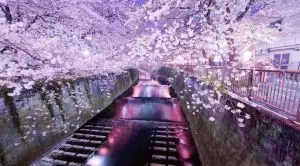 The 2018 regular Diet session in Japan was finally scheduled to start today, following several months of difficulties related to snap election, delayed legislative process and opposition changeovers. The process, which is to take place over the following five month, is to see local lawmakers have discussions on a number of bills with great national importance for the first time since the previous ordinary session closed in June 2017.
The 2018 regular Diet session in Japan was finally scheduled to start today, following several months of difficulties related to snap election, delayed legislative process and opposition changeovers. The process, which is to take place over the following five month, is to see local lawmakers have discussions on a number of bills with great national importance for the first time since the previous ordinary session closed in June 2017.
There was supposed to be a fall session of the Japanese legislature in September, but Shinzo Abe, the country’s Prime Minister interrupted it by calling a snap election. Then, in October 2017, a special Diet session which lasted for a month, kicked off but it failed to bring to light some debates on a bill on any significant political issues.
New Legislative Session to Bring Important Issues to Light
 One of the paramount priorities which are to be discussed over the 5-month session of the legislature is undoubtedly a bill aimed to specify the situation with the so-called casino integrated resorts. The bill that is to be discussed also includes an amendment that is set to lower the adulthood age in the country from 20 to 18.
One of the paramount priorities which are to be discussed over the 5-month session of the legislature is undoubtedly a bill aimed to specify the situation with the so-called casino integrated resorts. The bill that is to be discussed also includes an amendment that is set to lower the adulthood age in the country from 20 to 18.
Other matters that are set to be discussed over the 2018 regular Diet session starting today include a long-delayed debate on the possible revision of the Japanese postwar Constitution. These debates could also lead to the first national referendum initiated in the country, as such a nation-wide vote is required in order for any constitutional amendment to be made.
Furthermore, the so-called “work-style reform” of Prime Minister Abe, which has caused a lot of controversy related to of part-time and full-time employees.
Casino Gambling in Japan
 For years, casino gambling was not permitted in Japan. This status quo changed in December 2016, when the so-called “Integrated Resort Promotion Law” was officially passed by the country’s Parliament. The piece of legislation, however, brought some controversy related to the matters of casino gambling.
For years, casino gambling was not permitted in Japan. This status quo changed in December 2016, when the so-called “Integrated Resort Promotion Law” was officially passed by the country’s Parliament. The piece of legislation, however, brought some controversy related to the matters of casino gambling.
The new law saw casino gambling only allowed as part of a larger hotel resort. Under the requirements of the piece of legislation, such resorts had to include not only a hotel, but also some entertainment facilities and an international conference hall.
Since then, the first two integrated resorts’ location has been considered, with some market analysts saying that the cities of Yokohama and Osaka, which are currently the second- and the third-largest cities in the country, are very likely to host them once the legislation is officially implemented.
As previously reported by Casino Guardian, the new piece of legislation has caused some controversy in the country, as some Japanese residents have been concerned about the possible negative impact that the elimination of the casino ban could have on the country. According to the data presented by a local survey which took place in August 2017, approximately two-thirds of the individuals who participated in the poll said they did not approve of the casino gambling law’s introduction.
- Author


